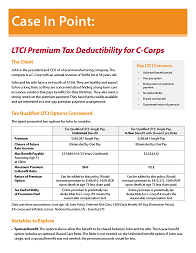What it is
Long-term care refers to a wide range of personal care and other related services provided on an extended basis to people who need help with certain Activities of Daily Living (ADLs) or who need supervision due to severe cognitive impairment such as Alzheimer’s disease or by simply growing old and becoming frail.
The need for long-term care can occur due to:
- Aging (frailty) – inevitable (not if, but when and how long)
- Disease – statistical probability
- Accident – statistical probability
Long-term care insurance policies protect the insured’s assets from the drain of long-term care expenses. However, even more importantly, long-term care insurance:
- Relieves the financial burden on loved ones
- Provides the family with the financial means to hire a trained care provider rather than struggling to “make do” themselves, allowing for better quality of care for the patient and better quality of life for loved ones
- Alleviates stress and emotional burden for all involved family members
- Allows the insured to leave the family a financial legacy
How to explain it
Long-term care insurance helps pay for the expense of covered long-term care when someone can no longer care for themselves and they must rely on others to provide assistance.
Long-term care insurance can help pay for:
- Home Health Care
- Assisted Living Facility Care
- Nursing Home Care
- Adult Day Care
- Personal Care – ADL Assistance
- Homemaker Services – IADL Assistance
- Hospice Services
- Respite Care
The cost of this care is surprisingly high. Clients who plan to self-fund may quickly drain their resources. This Cost of Care Calculator can help you illustrate the potential costs.
When to offer it
Offer long-term care insurance to clients who are in their 50s, 60s and 70s. Also, encourage clients to discuss the need for long-term care insurance with their aging parents. Long-term care insurance is a great option for those who want to:
- Protect retirement savings and other assets they have put aside
- Shield family and friends from the burdens of care giving
- Maintain control and choice of where they receive their care
- Receive care at home
- Preserve their independence and quality of life
Clients should buy long-term care insurance when they are young enough to command lower premiums and healthy enough to secure a policy (money pays for LTCI, but good health secures it). Keep in mind that women are at greater risk than men. If you are working with a married couple, explore discounts and shared-care opportunities.
Suggested Resources









